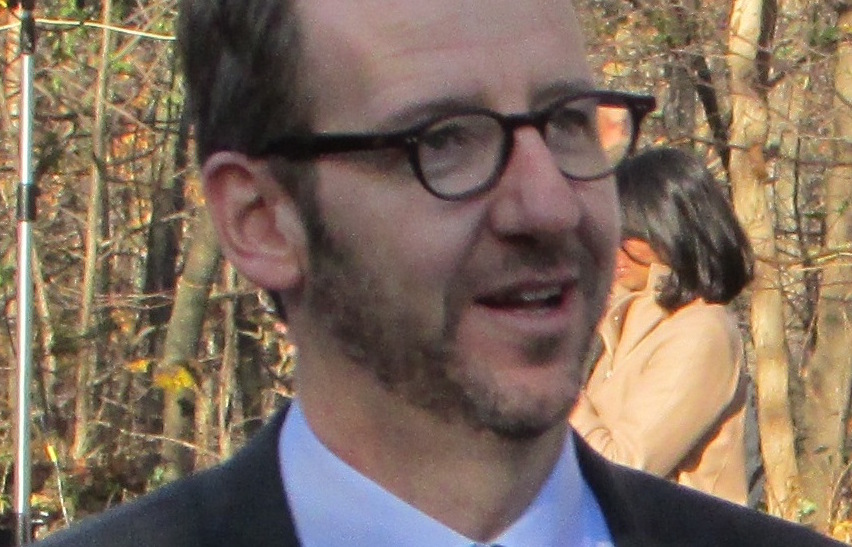Gerald Butts resigned Monday from his post as principal secretary to Prime Minister Justin Trudeau.
The government has struggled while denying anonymous accusations aimed at the prime minister’s staff reported by The Globe and Mail. Journalists Robert Fife, Steven Chase and Sean Fine wrote that pressure was brought to influence former justice minister Jody Wilson-Raybould to protect SNC-Lavalin from criminal prosecution.
Last week the ethics commissioner announced an investigation of possible improper government conduct. The NDP are calling for an independent judicial enquiry. The Conservatives want a partisan-stocked parliamentary committee to call as witnesses anybody involved.
Ottawa awaits a statement from Wilson-Raybould on the substance of the allegations. The Vancouver-Granville MP resigned from cabinet February 12 — she was demoted to the Veterans Affairs portfolio in mid-January — in the wake of the prime minister’s varied responses to questions about the anonymous sources report. Her continued silence has put Team Trudeau on the spot and its crisis communications have failed to respond with solid answers.
Comments by the prime minister on the reasons for Wilson-Raybould’s demotion and departure had been partial, incoherent and contradictory. The former justice minister was slighted and her conduct criticized as Trudeau spoke with the press day by day.
The Liberal government had lost control of the story surrounding her resignation from cabinet; and it looks suspect in its handling of the SNC-Lavalin file. In the speculative media frenzy to identify who leaned on Wilson-Raybould, Gerald Butts figured prominently.
In his letter of resignation, Butts wrote that he “categorically” denies any attempt to influence the former justice minister or the conduct of justice and declares he wants to be free to defend his reputation.
Butts may have decided he can no longer act effectively as principal secretary to the PM. This does not rule out him coming back to direct the next election campaign or to defend the Trudeau government from the sidelines in the meantime.
Butts is closely associated with the political career of Justin Trudeau. Friends since they were McGill undergraduates, Butts counselled Trudeau in his successful nomination battle to become an MP, and developed the strategy that produced a Liberal majority government in 2015, when the party came from third place to win.
It has become an axiom for political leaders that the people who help you form a government are not necessarily the people you want running the government with you.
Justin Trudeau went with his campaign team leaders Gerald Butts and Katie Telford to staff the prime minister’s office (PMO). Butts had been main adviser to Ontario Premier Dalton McGuinty; Telford was a player in the Queen’s Park Liberal government as well.
Historically, big provincial players have difficulty in Ottawa starring roles.
Team Trudeau took real risks when it put political newcomers in the two most prominent and sensitive cabinet posts. Neither Bill Morneau in Finance nor Jody Wilson-Raybould in Justice had ever run for office or been elected. Each was expected to advise the government on the political pitfalls surrounding their portfolios.
Wilson-Raybould, the first Aboriginal Minister of Justice, was a former Crown prosecutor, and has extensive experience in Aboriginal circles. Naming her to cabinet was obviously designed to make the government look good on the reconciliation file, not just reward a capable prosecutor with a prestigious portfolio.
Morneau, former head of a pension advisory firm established by his father, bungled the national infrastructure bank roll-out, created a backlash among small business owners with a poorly thought-out tax reform package, and proposed worsening pension coverage for Crown corporation employees, using a formula developed by his family company and implanted in New Brunswick.
Wilson-Raybould piloted difficult cannabis legislation — a main Trudeau platform promise — with difficulty. The process of appointing judges was unaccountably slow, causing worsening court delays and dropped charges with ruling from the bench: “justice delayed is justice denied.”
Reading the 2015 mandate letter for the minister shows a lot was asked of her department, while significantly less was achieved.
The last few Wilson-Raybould justice department speeches could be read as calls for change to government policy on Indigenous questions.
Wilson-Raybould had to watch Team Trudeau make wonderful statements about national reconciliation, while the PM walked the talk for the petroleum industry, and the government tried to deflect objections from Indigenous peoples to new resource exploitation activities on their territory.
Cabinet secrecy and solidarity bind ministers. Any major differences between the federal government and First Nations were bound to make Wilson-Raybould uncomfortable.
Demoting the justice minister turns out to have created a political storm that Butts — given he must have been in on the decision — has attempted to quell with his resignation. Even an eventual conciliatory statement from Jody Wilson-Raybould is not going to repair the political damage done to the government.
Duncan Cameron is president emeritus of rabble.ca and writes a weekly column on politics and current affairs.
Photo: Tholden28/Wikimedia Commons
Help make rabble sustainable. Please consider supporting our work with a monthly donation. Support rabble.ca today for as little as $1 per month!




